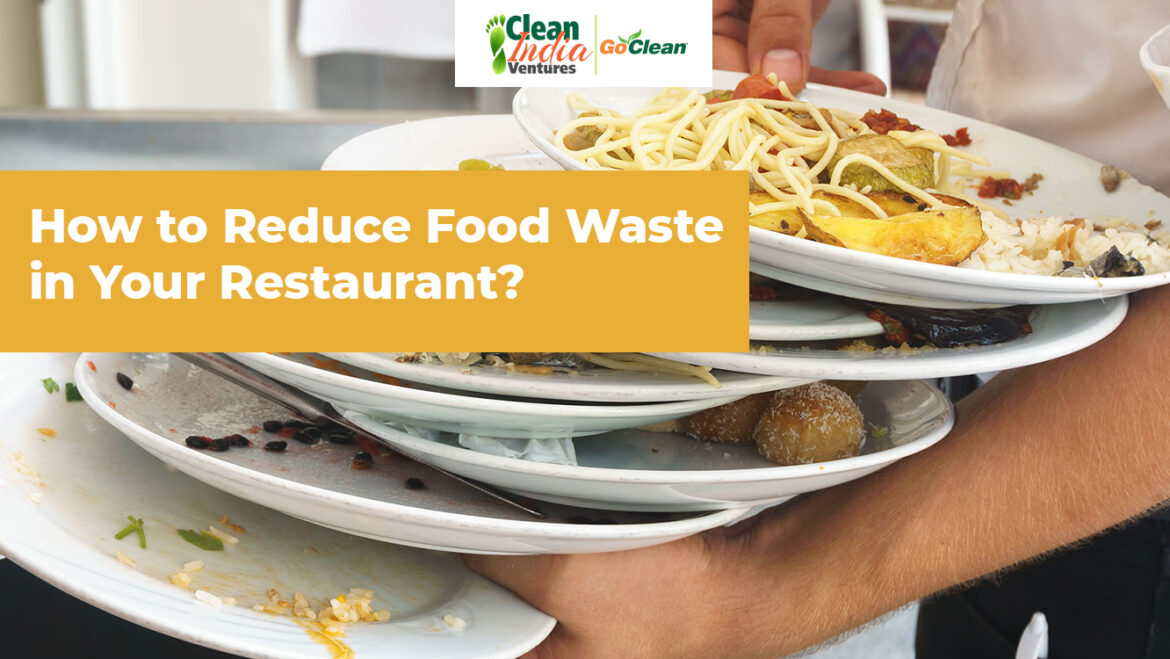Food waste is one of the biggest problems our country is facing at the moment.
Let’s have a look at some of the statistics before we move ahead:
189.2 million people, or 14% of the population, are undernourished in India — According to FAO estimates in ‘The State of Food Security and Nutrition in the World, 2020 report.
Also, there are 17.76 lakh severely acute malnourished children (SAM) and 15.46 lakh moderately acute malnourished (MAM) children as of October 14, 2021, as per the Govt. Data.
However, it’s the same country where an average person wastes 50KG of food in a year, says Food Waste Index Report 2021.
These numbers are just to give you the gist of the situation and how important it is for us to overcome this.
However, today we’ll talk about one of the places where food waste happens the most.
Yes, you guess it right — Restaurants.
We’ll discuss the reason of food waste in the restaurants, tips to reduce the food waste, and an ideal food waste management system for the.
So without any further adieu, let’s just jump straight into the topic.
Why does food waste happen at restaurants?
Restaurants, not only in India but around the globe, are always under the constant pressure of serving only fresh food to their customers, and they can’t compromise on it as it’ll upset their customers.
In their quest to maintain the quality, they can’t even afford to cook with substandard items. And that’s the biggest reason why the food is wasted in the restaurants.
The other reason for food waste at restaurants is because of the bulk purchase they make to meet the demands of the customer. Since the demands constantly fluctuate, most of their raw materials get spoiled.
And last but not least, Customers.
Yes! The uneaten food left by the customers accounts for a fair proportion of the food waste by the restaurants.
Tips to reduce & manage food waste at restaurants
Ingredients labeling or Stock Rotation
Suppose you’re a chef and you got an order of Paneer masala. So you open your fridge and go for the first paneer packet & the vegetable you get your hands on.
Right?
Well, that’s a very wrong way to manage your pantry & fridge.
The more efficient way would be the FIFO rule — First Come, First Serve.
Label the items with their expiry or arrange the vegetables & fruits in such a manner so that the soon to expire food first is first in order.
This way, you’d be less prone to deal with spoiled items.
Be Vigilant
Inspect all food orders, prepare the grocery list & menu together, regulate & keep a check on pantry temperature.
These are some methods by which you can prevent any unwanted spoilage.
Donate Surplus Food
What’s a better way to deal with surplus food than donating it to those who need it most. Dropping off surplus to a nearby underprivileged area.
You can also feed the food scraps to animals.
Compost Food Waste
All the above methods emphasize minimizing food waste.
But let’s just say there’s still food waste even after all these efforts.
What will you do about it? Throw it in the bin. Right?
No!
Your whole focus should be on putting your food waste to good use instead of simply sending it to landfills.
Why?
The organic waste you send to landfills goes through anaerobic decomposition and produces harmful greenhouse gases such as methane.
So what can you do about it?
The answer is simple — Composting!
When you compost your food waste, it helps reduce the load on landfills. Also, the resulting compost enriches the soil with nutrients that promote plants’ growth.
Plants not only provide oxygen to us but also help to reduce carbon levels in the atmosphere.
This way, you’re contributing your bit to society.
Now the next question that must be in your mind is, “Can cooked food be composted?”
The answer is, Yes! Cooked food is very much compostable. However, it tends to attract rodents & pests. It also gives an unpleasant odour.
So what’s the solution?
Well, you can try our GoClean organic waste composters that can convert organic waste into compost in 24 hours.
Also, since it’s a wholly enclosed process, there’s no possibility of an unpleasant smell or rodent attack.
But why only GoClean composters?
GoClean composters come in a wide range of capacities, starting from 25 kg and up to 1000 kg. So, you can always find the one that suits your requirements.
Also, it requires little to no manual effort, so you don’t need to invest in resources separately.
Conclusion
Being responsible citizens, we should find ways not only to minimize food waste but also the most efficient & sustainable food waste management solutions.
Also, though the ways to minimize food waste can be different, composting is the only sustainable method for treating any organic waste.
